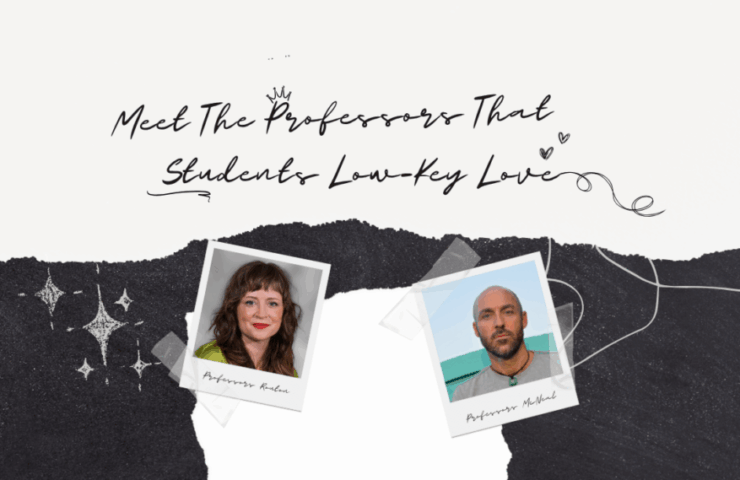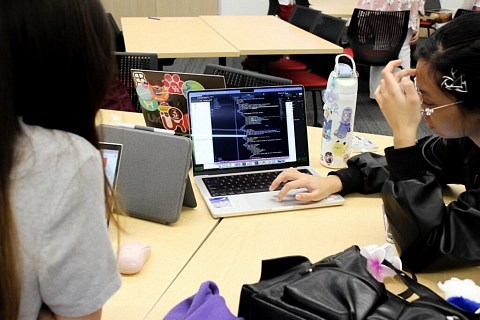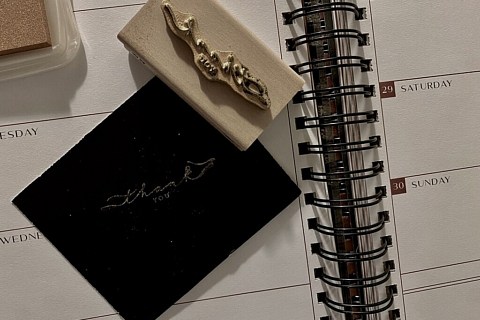Student body success at the University of Houston relies on the character and connectivity of professors.
The best ones are those who understand the needs of their students and can foster an engaging and informative environment in which students can actively learn and gain real-life connections with their professors.
The anthropology and information science departments are filled with professors like these. Their main goal is to help their students prepare for and succeed in the real world.
Meet Professor Pankaj Jagtap
Pankaj Jagtap is a digital transformation leader with more than 25 years of experience in technology, implementing SaaS solutions across various industries and bringing this knowledge to his students.
He holds a Master of Business Administration from the University of Colorado at Denver, a master’s degree in construction management from Michigan State University, and a bachelor’s in civil engineering from the Indian Institute of Technology, Bombay.
He is the founder and managing partner of FirstPrinciple Advisors, a boutique advisory firm. There, he coaches and mentors entrepreneurs and helps scale SaaS businesses, particularly in professional services and customer success.
Prior to his academic and advisory roles, he spent more than a decade at HighRadius Corporation, a SaaS provider for the office of the CFO. As senior vice president of professional services and customer success, he was part of the executive team that scaled the company from a startup to a $3 billion enterprise.
At the University of Houston, he teaches management information systems classes, teaching students how to lead technology-driven transformation through project management and transformational technologies.
As a professor, Jagtap structures his classes so students with both technical and non-technical backgrounds can engage in lectures.
“I focus on the business value that technology can create, rather than concentrating solely on the technology itself,” he says. “My goal is for my students to be business students first, with a strong understanding of technology as a tool to transform businesses. With this approach, all class discussions are highly business-oriented, making it easier for both technical and non-technical students to engage and comprehend concepts.”
Over the years, his teaching style has evolved to meet students where they are and to match tech trends.
“Like many new professors transitioning from the industry, I initially attempted to cover too much material in my first semester,” Jagtap says. “I quickly realized that this approach was overwhelming for students, and that less is actually more because students need time to absorb and digest the content.”
Instead, he transitioned to a more action-oriented and case study-based format of teaching.
“My lectures are now highly interactive, with students actively engaged in discussions, asking and answering questions, debating topics, and openly sharing their perspectives,” he says.
Additionally, through his lectures, he aims to prepare students for real-world research and collaboration in business and technology. He does so through inviting industry leaders as guest lecturers, assigning extensive group and collaborative exercises and encouraging students to lean into a storytelling presentation style.
Jagtap said the most rewarding thing about being a professor is being able to share his real-world experience with them and building strong, mentoring relationships with his students. This is the kind of care that makes his students love him.
“The highlight of the semester is always the final class, where students dress business-formal and present their group project, applying everything they have learned throughout the semester,” he says. “We celebrate with coffee, donuts, a class photo, hugs and goodbyes. It’s a celebration of everything we have accomplished throughout the semester.”
Meet Professor Erin Routon
Dr. Erin Routon’s professional and academic journey showcases her commitment to anthropology, education and social justice.
Her academic journey began with her bachelor’s degree in English at the University of Hawaii, followed by her master’s degree in religious studies from the University of California, Riverside, and finally, her doctoral and master’s degrees in anthropology with a minor in Latino studies through Cornell University.
Dr. Routon was a writing instructor at Harvard University, where she developed and taught courses on critical topics such as the history of immigrant incarceration and the visual representation of global forced migration. During her fellowship at the Harvard Inclusive Teaching Institute, she developed inclusive pedagogical practices to create equitable and supportive learning environments for all students.
Dr. Routon has extensively worked with nonprofit and activist organizations dedicated to serving immigrant and incarcerated communities by volunteering as a legal assistant with a legal advocacy coalition and with organizations like the Southern Poverty Law Center, a civil rights organization known for its work in fighting hate and injustice.
As an assistant professor at UH, Dr. Routon uses her expertise to inspire her students to pursue careers that are not only intellectually fulfilling but also socially impactful, fostering the desire for advocacy and meaningful community engagement.
At UH, Dr. Routon has developed her teaching style to increase student engagement in the classroom through utilizing intriguing course material and encouraging compelling class conversations.
“I like to keep things dynamic and discursive, whenever possible,” she says. “I’ve really leaned into this more as I’ve taught as a way to encourage engagement.”
Given the courses she teaches, she makes an effort to approach sensitive or controversial topics very mindfully.
“I’m thoughtful about the language I use in class, generally, but especially when we get to [more sensitive] sorts of topics,” she says. “I never want to shy away from such subjects, because they are important and already meaningful for students’ lives, but I try to do these sorts of things to move through them with care.”
As a cultural anthropologist, encouraging students to think critically about culture and cultural diversity are very important goals for her, and it is one of the qualities that make her students love her.
“While we consume material that engages with cultures across the globe, I also try to make space for students to think about these things through the lens of ‘home,’ rather than how their everyday experiences sit in relation to other cultures or lifeways,” Dr. Routon says.
Meet Professor Keith McNeal
Known for his challenging amounts of reading, Keith McNeal instills a deep passion for cultural awareness and cross-cultural understanding.
Beginning his educational career with an undergraduate degree in religious studies focused on Hinduism and Buddhism from Boston University, he later pivoted to anthropology for graduate studies in order to continue studying “lived” religion in people’s everyday life and experience.
He entered Emory University intending to pursue a doctoral project on Buddhist monasticism in Sri Lanka. However, civil war broke out there in the mid-90s and got in the way.
McNeal turned to the Caribbean after learning about South Asian indentureship and ended up doing a Ph.D. project on the development and politics of African and Hindu religions in Trinidad and Tobago (TT), where he conducted research and lived part-time for 28 years, considering it his second home—more than Houston.
He was a Fulbright Scholar in 2011-12 with the Institute for Gender and Development Studies at the University of the West Indies (UWI) in TT after a first academic job at University of California-San Diego, and considered staying longer, but the University of Houston lured him back to the United States and to Houston.
He was awarded a research grant that enabled him to be in Trinidad for a year and a half in 2015-16 and was a visiting professor at UWI-TT for three years between 2021-24. In actuality, even when he’s not on a grant, he’s always running to Trinidad during summers and winter breaks.
He came to UH as an assistant professor and was promoted to associate professor with tenure in 2014 and returned to the university in August 2024 after the visiting position abroad.
A strong voice for the queer community in both TT and the United States, he also traveled to Austin twice during spring 2025 to meet with state legislators and formally testify about protecting scientific inquiry and academic freedom in higher ed against the accelerating wave of repressive authoritarianism at large.
He is a longtime collaborator with the Houston Climate Justice Museum and also involved with the Evergreen Negro Cemetery restoration project in Fifth Ward, a community-led effort that has seen undergraduate UH students getting involved to help excavate and restore one of the oldest African American cemeteries in Houston into a living museum and community center.
Somehow, he manages to bring this same passion to his students.
“I somehow have a pretty good ability to translate complicated concepts and materials to help people see what it is that we’re talking about,” he says. “This enables us to keep moving and take an intellectual journey.”
In his classes, he poses many questions and encourages counterarguments, all while being theatric in his delivery..
“Students frequently tell me I’m the most passionate and animated professor they’ve had,” McNeal says. “I also have a lot of students who want to keep in touch after they graduate, so I guess I’m doing something right.”





Recent Comments